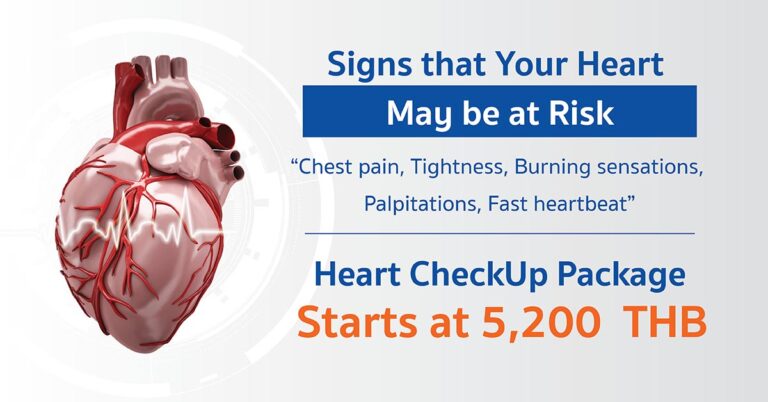Irregular Heart Beats is Dangerous?
At some point in our lives, palpitation makes you feel like your heart is beating too hard or too fast, skipping a beat, or fluttering. Even though, it is common sign from lack of sleep or after eating certain food or beverage. In contrast, this also can be incredibly frightening because it affects the heart. So, it is important to figure out the root cause of your heart condition and treat it properly.
Cause of Palpitation
- Strong emotional condition: stress, anxiety, nervous, excite, surprise, glad or sad.
- Physical trauma or sickness: cold, infection, diarrhea, nausea, vomit, dizzy, fatigue, anemia, hyperthyroidism and lung disease.
- Other common factors: lack of sleep, restless, effect from several food or medicines.
Besides the above conditions, palpitation is a sign of cardiac abnormalities in early stage, the come and go symptom relates to heart abnormalities as follow
- Heart arrhythmias which represent both bradycardia and tachycardia.
- The other abnormal cardiac structures and function such as coronary artery, ischemic heart disease, valvular heart disease and pericarditis.
Know The Cause of Palpitation
- Blood test
- Electrocardiogram (EKG)
- Exercise stress test
- Echocardiogram
- 24-Hour Holter Mornitoring
Palpitation Treatment
Patients with palpitation can receive medication treatment to ease the symptoms. On the other hand, patient with serious palpitation may have to undergo the Cardiac Catheterization, electrophysiology study and ablation treatment which more likely to become the high effective treatment for palpitation.
Regarding Bradycardia condition or if your heart rate is too low, doctor may consider pacemaker implantation to correct the heart rate and restore the appropriate heart rate.
As mentioned above, the threat of palpitation cannot be underestimated. Regular annual check-up and doctor consultation are significant to avoid or protect other complications which might lead to unexpected life-threatening conditions.
- Readers Rating
- Rated 4.5 stars
4.5 / 5 ( Reviewers) - Outstanding
- Your Rating




























